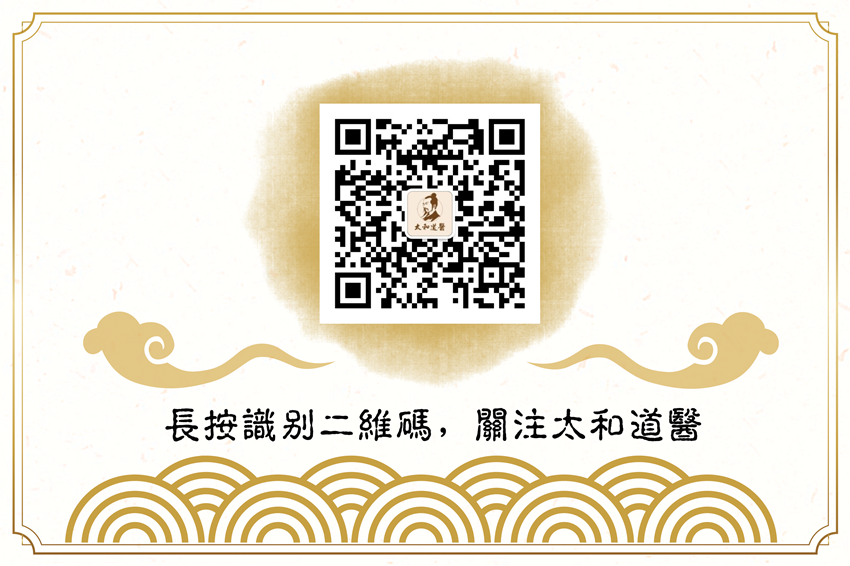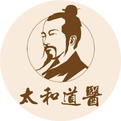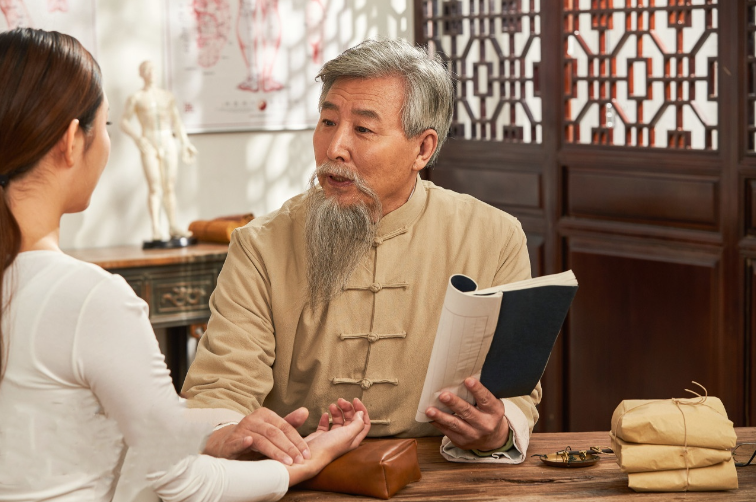

 Laziness may indicate Qi deficiency!
Laziness may indicate Qi deficiency!

In Traditional Chinese Medicine (TCM), Qi encompasses three aspects:
The innate essence of Shen (Kidney);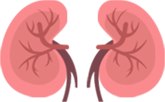
The acquired essence from food and drink of Pi Wei (Spleen and Stomach);
The air we breathe of Fei (Lung).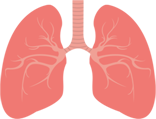
Qi deficiency includes three aspects: Kidney deficiency, Spleen deficiency, and Lung deficiency.
People with sufficient Qi have strong limbs, love to exercise, are energetic, and particularly lively.
The most significant characteristic of Qi deficiency is “laziness”, being reluctant to speak, unwilling to move, preferring to lie down all day, and feeling exhausted with even slight activity.
Huang Qi (Astragalus) is considered the best herb for tonifying Qi. Drinking Huang Qi-infused water is very effective for Qi deficiency and fatigue.

 Acne may indicate Yin deficiency!
Acne may indicate Yin deficiency!

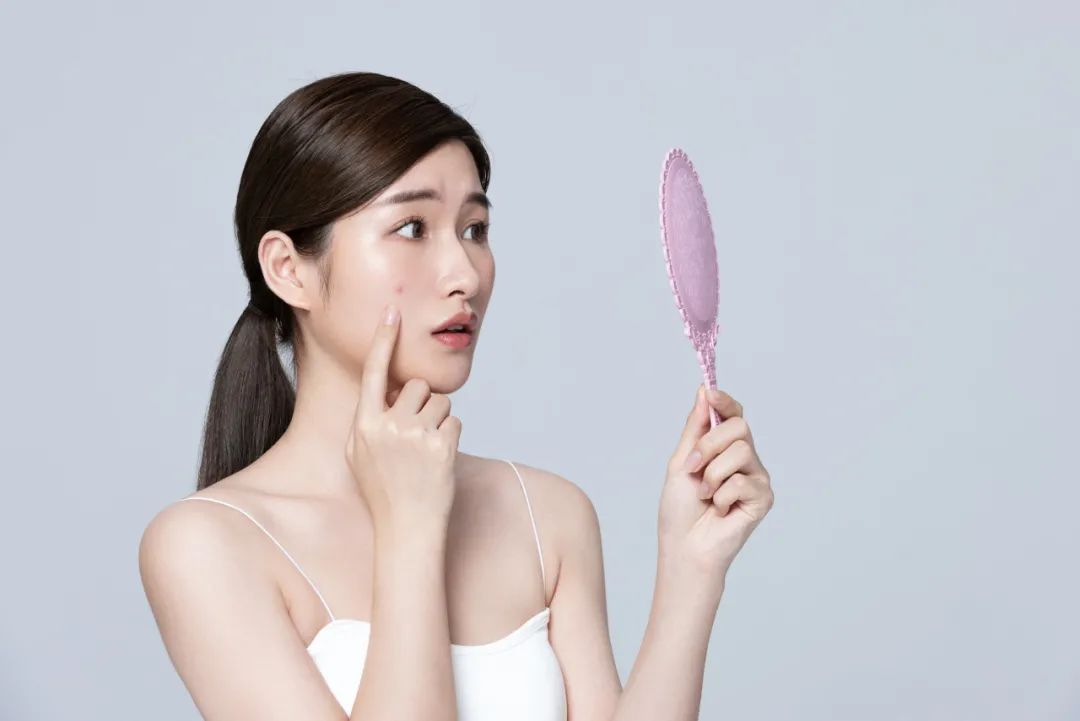
Yin corresponds to water and body fluids. Yin deficiency primarily refers to the lack of nourishing fluids such as body fluids and blood.
When the organs, senses, and skin lose moisture, the body becomes dry, making dryness the most typical characteristic of Yin deficiency.
The most prominent manifestation is the appearance of acne on the face.
Using Di Huang (Rehmannia) for infusion or soup is recommended! Di Huang is sweet and cold, capable of generating fluids and nourishing Yin.

 Hair loss may indicate Blood deficiency!
Hair loss may indicate Blood deficiency!


Blood is the carrier of nutrients,and Blood deficiency means insufficient nourishment in the body, leading to dryness, malnutrition, and hair loss.
The primary treatment for Blood deficiency is to strengthen the Spleen and Stomach. The “Zheng Zhi Zhun Sheng” states: “The Spleen and Stomach are the source of Qi and Blood.” A strong Spleen and Stomach can transform the ingested essence into Qi and Blood.
What to do for Blood deficiency? Dang Gui (Angelica) infusion is a good choice. Dang Gui is known as the holy herb for nourishing Blood; it is sweet, spicy, and bitter, warm in nature, and enters the Liver, Heart, and Spleen meridians. Its sweet and warm quality is excellent for nourishing Blood, effectively replenishing Blood deficiency and moistening dryness.

 Cold sensitivity may indicate Yang deficiency!
Cold sensitivity may indicate Yang deficiency!


Yang deficiency refers to insufficient Yang energy in the body, leading to external cold. The most typical characteristic is cold sensitivity!
Insufficient Yang energy is generally characterized by Spleen and Kidney Yang deficiency, especially Kidney Yang, which is the source of all Yang. The Kidney governs reproduction, bones, and water, thus individuals with Yang deficiency may experience reduced libido, lower back pain, and other symptoms.
Soaking feet in ginger and mugwortis a good choice. Use three slices of ginger and an appropriate amount of mugwort to boil water for foot soaking.

 How to enhance Yang energy in winter?
How to enhance Yang energy in winter?


1“Do not spit saliva in the morning”
At midnight, the Yang in the Kidney begins to rise.
One gives birth to two, two gives birth to three, three gives birth to all things.
By morning, the Kidney Qi is full, and upon waking, one feels refreshed.
The Kidney, in terms of fluids, refers to saliva. In the morning, when Kidney Qi is abundant, the saliva is rich in Kidney Qi, which is thin and beneficial for nourishing Yin and benefiting the Kidney. Swallowing saliva in the morning is very beneficial for nourishing Kidney Qi and enhancing Yin.
Therefore, in the morning, one should swallow saliva instead of spitting it out.

2“Do not ejaculate at noon”
This phrase is easy to understand—do not engage in sexual activity at noon.
After lunch, people feel extremely sleepy. Some believe this is due to blood entering the digestive system, reducing blood supply to the brain, causing drowsiness. Others think that after eating, blood lipid levels rise, increasing blood viscosity, leading to fatigue.
The heart belongs to fire, and after burning for a morning, the heart Qi becomes slightly deficient. The heart houses the spirit. When heart Qi is deficient, the spirit becomes unclear, leading to lethargy and lack of energy.
One solution is to take a nap.
Napping is fine, but one should avoid sexual activity, as it depletes Kidney essence, which is detrimental to Yin. The process of desire also consumes heart Yang and heart Qi. Therefore, engaging in sexual activity at noon is not beneficial for balancing water and fire or enhancing heart Yang and heart Qi.

3“Do not sweat at night”
At night, the body’s Wei Qi is stored, and Kidney Yang is deeply hidden.
During this time, one should rest and recuperate to align with these physiological changes. If one sweats heavily at night, it indicates the Qi is leaking with the fluids, which is detrimental to the storage of Wei Qi and Kidney Yang.
If the storage is not well maintained, it can lead to insufficient rising, which over time affects our physical condition.
Moreover, at night, the temperature is much lower than during the day. Excessive sweating opens the “ghost gate,” making it easy for wind, cold, and dampness to invade the body, causing illness. Although modern life cannot fully adhere to these standards, after 10 PM, when all is quiet and people are ready to sleep, one should “close the ghost gate and store Wei Qi”; sweating at this time can harm the body.
“Ecology” refers to the organic connection between living beings and their environment. Ecological ethics is the moral concept, basic norms, and ethical practices regarding the relationship between life and the ecological environment. Since the 20th century, with the widespread recognition of environmental crises, ecological awareness has emerged from professional circles to the public stage, tasked with influencing human environmental practices and maintaining global ecological balance, becoming a prominent subject worldwide. Taoism is not ecology, but its ecological ethical spirit is irreplaceable due to its unique characteristics; otherwise, it would not have declined and revived, continuing to influence profoundly to this day. In terms of ethical understanding, Taoism emphasizes the joy, tranquility, simplicity, and enrichment of life, focusing on the harmony between self and nature, human-centeredness, and profound yet simple content, which is infinitely interesting; in terms of ethical practice, Taoism is dedicated to cultivating the essence, nurturing the hidden, and seeking a life of emotional, behavioral, natural, human, and cultural interaction, thus demonstrating a conscious initiative to develop life vitality, unity with natural objects, and the holistic system of ethical understanding. In Taoist terms, it is said that “the way of nature cannot be violated” and “follow the way of nature.” This nature refers to the essence of things, the nature of life, and the nature of society. Understanding the essence of things, life, and society, and seeking the style, attitude, and demeanor that life and nature should have is the goal and spiritual pillar of Taoist ethics.
The ecological ethical spirit of Taoism is reflected in its exquisite and profound content and the appeal it holds for the world, embedded in the vitality that allows it to endure and develop over time. Specifically, the ecological ethical spirit of Taoism is mainly manifested in six aspects:
First is the spirit of unity of all things. The highest object of worship in Taoism is the “Dao.” The purpose of Taoism is to achieve immortality and become an immortal. Achieving the Dao means integrating with the great way through cultivation; thus, Taoism is the religion that emphasizes real life the most among many religions in China. It views all things in the world as one, believing that the existence of all things in nature is reasonable, and humans are part of the universe, should enjoy life, value life, and continuously elevate life. Humans should also respect the existence and individuality of all things with a sense of equality. The early Taoist classic “Tai Ping Jing” states: “Heaven and Earth are harmonious and share the same heart, coexisting with all things,” suggesting that the ideal peaceful world is one where humans and all levels of natural things coexist harmoniously and prosper together. In the thoughts of Taoist thinker Ge Hong, the awareness of equality in the unity of all things is also very clear and rich; he believes that through cultivation, humans can achieve the ideal of “long life and immortality,” which is the realm of unity with nature or the unity of all things. Taoism also has the thought of “the way of life is one, valuing life”; Laozi pointed out that the Dao is the origin of the universe, the Dao gives birth to one, one gives birth to two, two gives birth to three, and three gives birth to all things. Zhuangzi said: “Heaven and Earth are born with me, and all things are one with me.” This indicates that Taoism emphasizes understanding and grasping human will from the height of the universe. The ecological ethical spirit of the unity of all things tells people to live in harmony with nature and create a society of harmonious coexistence.
Second is the spirit of giving birth without possession. Related to the spirit of unity of all things, Taoism believes that the highest realm and standard of life is the morality of producing all things without possessing them. Taoism holds that the highest realm of physical cultivation and spiritual perfection is the “Dao.” How is the Dao produced? Ge Hong proposed: “The Dao arises from one, its value is without equal, each resides in its place, symbolizing Heaven, Earth, and humanity, hence it is called the three unities.” Heaven obtains one to be clear, Earth obtains one to be peaceful, humanity obtains one to be alive, and spirit obtains one to be spiritual. Furthermore, he believes this is an elaboration of Laozi’s wisdom of the great Dao. Laozi pointed out that “humans follow the Earth, the Earth follows Heaven, Heaven follows the Dao, and the Dao follows nature,” and the essence of nature is: “The Dao is revered, virtue is precious, and nothing commands it but remains natural. Thus, the Dao gives birth, virtue nurtures, grows, protects, and covers, giving birth without possession, acting without reliance, growing without dominating, this is called profound virtue.” Therefore, only “the Dao follows nature” aligns with moral thought. Noble morality lies in proliferating all things without claiming them for oneself, helping all things without boasting of one’s contributions, and guiding all things without dominating them. The Tang dynasty Taoist scholar and physician Sun Simiao is a practitioner of this spirit; his medical theory is based on the unity of heaven and humanity, and the idea of giving birth without possession, stating: “Heaven has four seasons and five elements, humans have four limbs and five organs, Yang uses its form, Yin uses its essence, which is what heaven and humanity share,” and “a good doctor guides with medicine and stones, saves with needles and agents, and a sage harmonizes with supreme virtue, assisting with human affairs, thus the body can recover from illness, and heaven and earth can eliminate disasters.” Sun Simiao himself “exhausted various arts, discussing the true one,” not only excelling in medicine but also possessing high moral character. The Taoist spirit of giving birth without possession has considerable practicality and universal significance, proposing the concept of sustainable balance and development of worldly matters, revealing that humanity must follow nature and emulate natural laws, knowing what to do and what not to do to achieve results; if one forcibly takes, it will backfire, disrupt harmony, and not reach a high realm.
Third is the spirit of shaping all things. Before Taoism, the “Zhou Yi Chuan” stated: “The great person aligns their virtue with Heaven and Earth, their brightness with the sun and moon, and their order with the four seasons.” Here it points out that the heavenly way and the earthly way are opposing yet coordinated, and this coordination is mediated by humans. Laozi elevates humans to an important position: “Thus, the Dao is great, Heaven is great, Earth is great, and humanity is also great. Among the four greats, humans occupy one.” Since “humans are also great,” they are not merely dependent on nature, subject to it, but must harness natural laws. Because humans rely on nature for survival, they must engage in material exchange with nature. Taoism further proposes that humans should think thrice before acting, assess the time and situation, seek immortality and the Dao without forcing actions; if one acts against the Dao and “acts recklessly,” it will inevitably harm one’s nature and even endanger humanity itself. Practitioners of Taoism believe that humans and all things in the universe resonate with each other, and the basis of this resonance is that both humans and all things possess spirituality, and humans communicate with things. The universe evolves continuously, and life is everlasting; as a member of the cosmic community, humans should aim to promote the harmony and perfection of the entire universe, rather than engage in destructive behaviors that stifle the vitality of the universe. Therefore, Taoism not only provides a belief system for people to find their place in life or to focus on the improvement and adherence to doctrines and regulations, seeking solemnity and sincerity in rituals and prayers, but also materializes beliefs or doctrines into various Taoist practices and techniques, forming an operational system that guides followers to practice. It can be said that Taoism is a religion that values the Dao, techniques, and actions, emphasizing both the elevation of the Dao and actively advocating for practices and cultivation techniques. A true disciple of the Dao comprehensively grasps the essence of Taoism, not only understanding its fundamental purpose or possessing sincere faith but also undergoing training in Taoist techniques, diligently accumulating Taoist achievements, progressing endlessly, and continuously deepening and purifying their faith. This fully emphasizes the initiative of human activities and the adaptability of humans to nature. As intermediaries and coordinators of heaven and earth, humans must follow nature while also guiding and regulating natural changes to shape all things.
Fourth is the spirit of unity in diversity. The spirit of unity in diversity in Taoism is connected to the spirit of “harmony and unity” in traditional ethics. The Taoist “Tai Ping Jing” states: “Harmony is the master of all things,” believing that all levels of things in the natural world and human society contain three basic elements: Yin, Yang, and harmony, which together constitute one entity, hence the name of the three unities. “The original Qi has three names: the sun, the moon, and harmony. The form has three names: Heaven, Earth, and humanity. Heaven has three names: the sun, the moon, and stars, with the North Pole as the center. Earth has three names: mountains, rivers, and flat land. Humanity has three names: father, mother, and child. Governance has three names: ruler, minister, and people.” The three unities represent the ideal peaceful world. The way of Yin and Yang reflects heavenly will, so humans must follow the principles of Yin and Yang, maintaining harmony between people and between humans and nature from all aspects to avert disasters and achieve world peace. To achieve this goal, Taoism has developed the idea of harmony in its belief system, alchemical practices, and ritual norms. The ecological wisdom of unity in diversity helps people recognize the significance of the diversity of all things. Protecting the diversity of things can lead to sustainable development.
Fifth is the spirit of cyclical regeneration. In terms of how to effectively utilize nature, traditional Chinese people have established the goals of “greatness” and “longevity,” believing that to achieve these goals, one must possess upright virtue, emulate heaven and earth, and use systems to restrain human insatiable desires, preventing harm to nature and humanity. The “Zhou Yi” points out two paths: the first is “Nine Two, steadfast and auspicious, is in the middle.” The second is “The middle is correct and connects. Heaven and earth are regulated, and the four seasons are formed; regulation restrains the world, harming neither wealth nor people.” Taoism has also developed similar thoughts, emphasizing that recognizing life and the conditions for its existence is the wisdom and virtue of sages, and the ideal living world for humans is a beautiful society where humanity and nature are one, believing that in such a society, life can cycle continuously, flow without interruption, and thrive endlessly. Early Taoism believed that those who achieved immortality could transform and fly, standing apart from ordinary human nature, even transforming into different forms, like a sparrow transforming into a clam, or a pheasant transforming into a giant clam. Later Taoism absorbed more daily thoughts from human relationships, viewing the perspective of life’s cyclical regeneration as the path of immortality, advocating for “aging without decline, extending life, and moving freely.” During the Five Dynasties, Taoist scholar Tan Qiao viewed the universe, life, and society through the lens of “transformation,” proposing: “The spirit transforms into Qi, Qi transforms into form, form transforms into essence, essence transforms into perception, and perception transforms into yielding and yielding…” The prosperity of life and society exists in the process of changing unity. In terms of utilizing resources, Taoism advocates for humans to restrain desires, maintaining the vitality and developmental energy of all things, which aligns with traditional Chinese thoughts on seasonal practices such as prohibiting logging before summer, banning the capture of young animals and birds, and not overfishing or burning forests. Interacting with biological resources involves material exchange. This exchange is not about forcible possession but about adapting and adjusting to nature.
Sixth is the spirit of interconnectedness. Taoist thought has always viewed nature as a vast living system, where all things are organically connected. The universe operates at the intersection of time and space coordinates. Since the time of Laozi and Zhuangzi, the mysteries of nature have been explored to reveal the inherent relationships within the natural world. Laozi said: “The great Dao is vast and can be approached from either side. All things are sustained by it without complaint, and accomplishments are achieved without claiming them. It nourishes all things without being the master, always without desire, which can be called small. All things return to it without being the master, which can be called great. Because it never seeks to be great, it can achieve greatness.” This means that the great Dao nourishes all things like a vast river, without selfishness or bias, like a great mother caring for all life, and all life depends on the Dao for sustenance. We should treat nature kindly because fundamentally, “humans and heaven are one.” Therefore, it is essential to protect the ecological environment. Zhuangzi said: “All things are seeds, differing in form and appearance, beginning and ending like a ring, with no distinction of order, this is called heavenly equality. Heavenly equality means heavenly fairness.” This means that all things come from specific species, but there are also connections and transformations between different material species, like a ring, with no beginning or end. This natural interconnectedness can be called “heavenly equality.” Taoism believes that the Dao is the origin of the world, the total source of all life, and the driving force behind the generation of all things. Tang dynasty Taoist Wu Jun said: “To connect and give birth is called the Dao; the Dao is inherently nameless. To nurture and form is called virtue; virtue is also inherently nameless. Examining this, heaven, earth, humanity, spirits, immortals, and ghosts cannot exist without the Dao, and cannot be completed without virtue. The living do not know their beginning, and the completed do not know their end. Seeking the hidden mysteries, no one can glimpse its origin, entering the end of existence and exiting the beginning of non-existence, no one can investigate its essence, this is called nature. Nature is the constant of virtue and the framework of heaven and earth.” Here, based on the inherent principles of the material world, the significance of moral essence to the material world is reasoned, which contains ecological ethical wisdom of continuous vitality and orderly existence. The great Dao is the origin of the universe and the starting point for observing heaven and earth; from the perspective of the great Dao, heaven and earth are one, all things are together, and there is no distinction between objects and self; although heaven and earth have different forms and human affairs have their own principles, fundamentally, they all follow their nature, fulfill their essence, and exist naturally, which is the unity within diversity and the non-difference within difference. Understanding the unity within diversity and the non-difference within difference leads to understanding the great Dao and integrating into the great Dao.
In summary, the aforementioned aspects, when applied in reality to maintain biological species and beautify the living environment, can contribute to ecological balance and sustainable development. This means that the ecological ethics of Taoism must and can undergo modern transformation. The opportunity for transformation lies in the cultivation of a modern personality with noble spiritual realms. According to Taoist views, the lofty realm achieved through cultivation is not mysterious or unreachable; the highest immortals are manifestations of human creation and practice. The expert in the history of Chinese religions, Mr. Mu Zhongjian, summarizes the characteristics of the Taoist immortal personality as follows: first, a deep and vigorous vitality, thus able to live healthily and long; second, a high spiritual realm, transcending the “small self” to achieve the “great self,” thus the spirit can be immortal; third, extraordinary wisdom, with high insight and foresight, yet appearing simple and humble; fourth, benefiting without harming, acting without contention, and achieving merit in the world; fifth, being carefree and relaxed, open-minded and composed, adept at resolving troubles, and always maintaining a joyful heart. Achieving these aspects can be called living immortals. The so-called immortal realm, besides being happy and joyful, is also a beautiful and pleasant environment. Blue skies and white clouds, green mountains and clear waters, birds singing and flowers blooming, with people living peacefully and happily together, this is the beautiful life akin to a paradise on earth.
Those with sufficient Yang energy are spirited, while those with insufficient Yang energy suffer from numerous ailments; thus, learning to replenish Yang energy is crucial for those who have lost it.
This article is authored by Sheng Ai TCM Clinic, Sheng Ai TCM Clinic Service Platform

⊙ The content of this article is for clinical reference only; non-TCM professionals should not attempt to use herbs.
⊙ Some images and texts are sourced from the internet; if there is any infringement, please contact us for removal.
⊙ For TCM consultation, please add WeChat ID:daoxuea
⊙ For submissions and collaborations: [email protected] (original submissions are welcome)
Article Highlights
❶ The best remedy for white hair, two types of Chinese herbs as tea, and a special acupuncture point to nourish deficiency and restore hair color!
❷ In TCM, “Essence, Qi, and Spirit”—our health depends on the condition of these three!
❸ The hands reveal kidney decline; if five types of “ugly signs” appear on the hands, the kidneys may have been “emptied”!
❹ In autumn, strengthen the Spleen and nourish the Lung, supporting Qi; yam is the “first” choice, suitable for the elderly and children!
❺ In the three months of autumn, practice “three defenses,” consume “three items,” and drink “three teas” to reduce illness in autumn and winter!
❻ Outsiders consume ginseng, while insiders only consume this! It is exceptionally effective for tonifying Qi and generating Blood, and its price is just a fraction of ginseng!
❼ More and more people suffer from heat and cold imbalances and middle-Jiao stagnation; here are some tips to balance cold and heat, and expel fire!
❽ Heart fire, stomach fire, liver fire, lung fire, kidney fire—one formula can eliminate them all!
❾ A long-neglected “ancient holy medicine” that nourishes the Spleen and strengthens the Kidney, especially suitable for consumption in autumn and winter!
